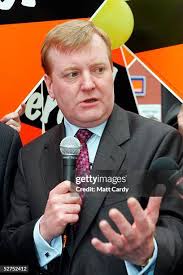Understanding the Role of the Lib Dem Leader in UK Politics

Introduction
The Liberal Democrats (Lib Dems) play a crucial role in the United Kingdom’s political landscape, often serving as a pivotal voice advocating for civil liberties and progressive policies. The current leader of the Lib Dems is significant not just for their party but also for the broader context of British politics, particularly in the face of mounting challenges from both Labour and the Conservatives. As the political climate evolves, understanding the leader’s stance becomes increasingly relevant for voters, analysts, and political enthusiasts alike.
Current Leadership
As of 2023, the leader of the Liberal Democrats is Ed Davey, who has held the position since August 2019. His leadership has seen the party navigating a turbulent political landscape, from handling the ramifications of Brexit to addressing the pressing issues of climate change and the ongoing cost of living crisis. Under Davey’s guidance, the Lib Dems have made significant inroads, especially in local elections, capitalising on the electorate’s desire for alternatives to the dominant Conservative and Labour parties.
Significant Policies and Positions
Davey has focused on various key policies intended to resonate with the public, including commitments to environmental sustainability, improvements in education, and reforms in healthcare. One notable recent initiative has been the push for significant climate action, underscoring the party’s long-standing position on environmental issues. This has positioned the Lib Dems as formidable advocates for green policies, especially in the context of the ongoing COP climate summits.
Impact on Upcoming Elections
The upcoming general elections in 2024 are a critical test for both Ed Davey and the Liberal Democrats. Recent polling indicates a potential resurgence in support for the party, driven largely by the dissatisfaction among voters with the approaches taken by the current government. The challenge, however, lies in translating this support into seats in the House of Commons. To do so, the Lib Dems must consolidate their base while appealing to moderate voters disillusioned with the political status quo.
Conclusion
Ed Davey’s leadership is crucial as the Liberal Democrats strive to regain influence in the UK political arena. As they prepare for the approaching elections, the efficacy of the current leadership and their ability to communicate compelling alternatives to the established parties will be significant. For the electorate, the role of the Lib Dem leader will remain a focal point in assessing the political choices available, making their performance both in leadership and policy proposal essential for the party’s future.








